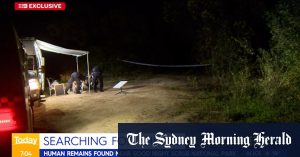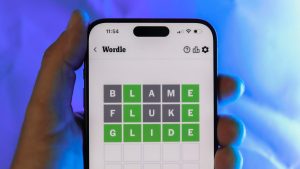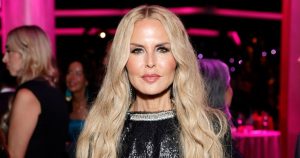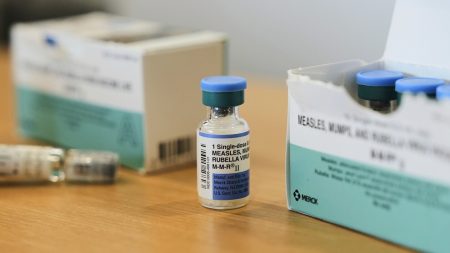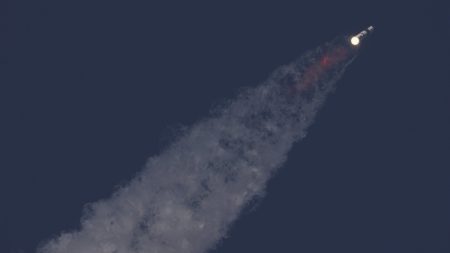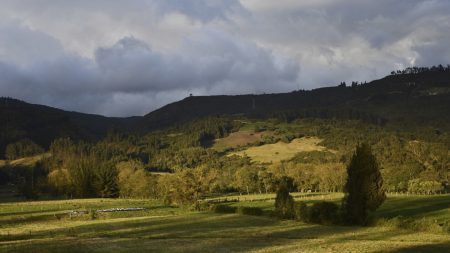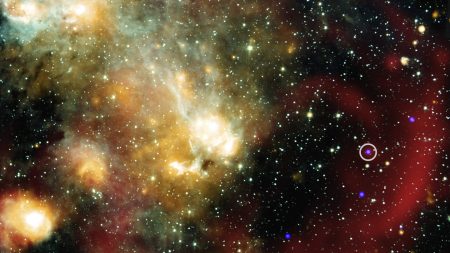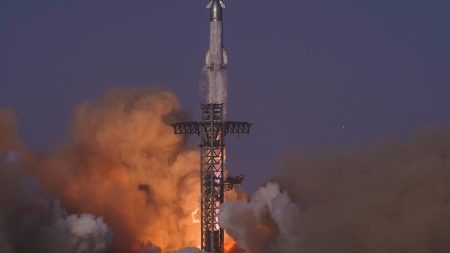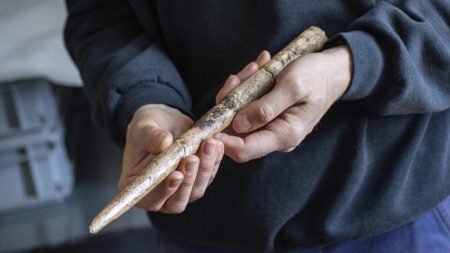A group of scientists and students, some with visual, auditory, and mobility impairments, embarked on a field trip to Lost Lake near the San Andreas Fault in California. This expedition, led by geologist Anita Marshall of the University of Florida, served as a practical demonstration of the hurdles faced by disabled researchers in accessing field sites and the innovative solutions that can promote inclusivity. The challenging terrain, with its steep, unpaved path riddled with rocks and holes, highlighted the physical barriers that often exclude individuals with disabilities from crucial research experiences. For those unable to navigate the difficult path, a drone provided a virtual view of the lake, showcasing technology’s potential in bridging accessibility gaps. The trip underscored the importance of adapting traditional research methods to ensure inclusivity, emphasizing that alternative approaches can be equally effective.
The field trip, organized by the International Association for Geoscience Diversity, aimed to foster a more inclusive environment within the geoscience community. Marshall emphasized that the ability to conduct research should not be limited by physical constraints and that diverse approaches can enrich scientific inquiry. Paleontologist Taormina Lepore, who participated in the trip, highlighted the importance of empathy and moving beyond conventional research practices. By providing alternative methods of accessing the research site, the trip enabled everyone to participate, regardless of their physical abilities, fostering a collaborative and supportive environment. This initiative aligns with broader efforts to increase the representation of disabled individuals in STEM fields, advocating for accommodations and inclusive practices that enable everyone to contribute their unique perspectives and talents.
The underrepresentation of disabled individuals in STEM fields, estimated at around 3% of the workforce, is partly attributed to inaccessible research environments. Labs, classrooms, and field sites are often designed without considering the needs of individuals with disabilities. Alyssa Paparella, a doctoral student in biology and founder of an online community for disabled scientists, pointed out the symbolic significance of inaccessible building features, like the lack of automatic door openers, which can deter disabled individuals from pursuing scientific careers. This exclusion not only limits diversity within the scientific community but also deprives the field of valuable perspectives and problem-solving skills. Individuals with disabilities often develop innovative strategies to overcome everyday challenges, a skillset highly transferable to scientific research.
Mark Leddy, who formerly managed disability-related grants for the National Science Foundation, emphasized the unique contributions of researchers with disabilities. Their lived experiences necessitate creative problem-solving, a critical asset in scientific endeavors. Leddy stressed that fostering a welcoming and accessible environment is essential to harnessing the full potential of these talented individuals. Examples of practical accommodations include the use of high-contrast color combinations for signage and maintaining clutter-free labs, as implemented by Venu Varanasi, a biomaterials engineer with low vision. These modifications not only benefit individuals with disabilities but also enhance safety and efficiency for all lab users.
Creating accessible research spaces requires a proactive approach, involving both physical modifications and a shift in mindset. Brad Duerstock, an engineering professor at Purdue University, helped design an accessible biomedical lab by removing under-counter obstructions to accommodate wheelchairs. While the cost of such modifications can vary, funding opportunities like grants from science organizations and dedicated university budgets are available to support these crucial improvements. The field trip to Lost Lake served as a microcosm of the broader movement towards inclusivity in science, demonstrating that with thoughtful planning and a commitment to accessibility, everyone can participate in scientific exploration.
The Lost Lake field trip underscored the importance of community and peer support in facilitating access for researchers with disabilities. Jennifer Piatek, a planetary geology professor who uses a wheelchair, appreciated the group’s anticipation of her needs, such as parking the bus in a location that facilitated her disembarking. The experience of being part of a supportive community enhanced her ability to engage with the research site, despite physical limitations. Lepore, using an AI-powered app to identify rocks, exemplified the potential of technology to enhance accessibility in fieldwork. Bushra Hussaini, who works at the American Museum of Natural History, highlighted the value of shared learning and mutual support within the geoscience community. Marshall’s leadership in organizing these field trips reflects a broader effort to create a more inclusive future for science, fostering a culture of accessibility and ensuring that future generations of scientists, regardless of their abilities, can fully participate in the pursuit of knowledge.
